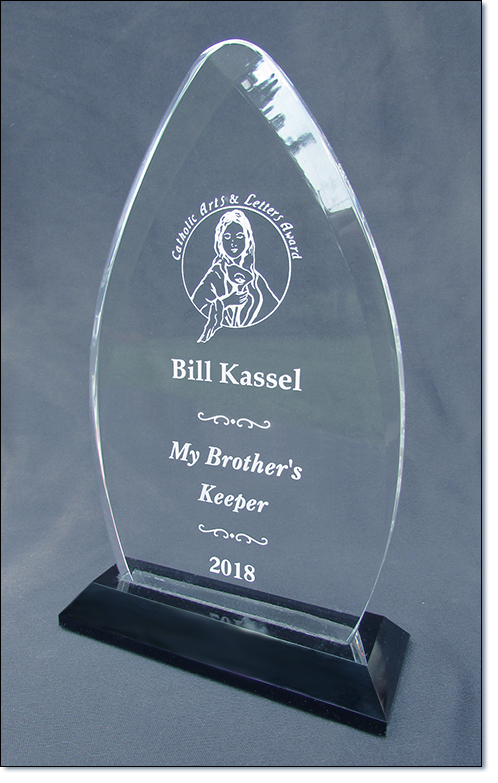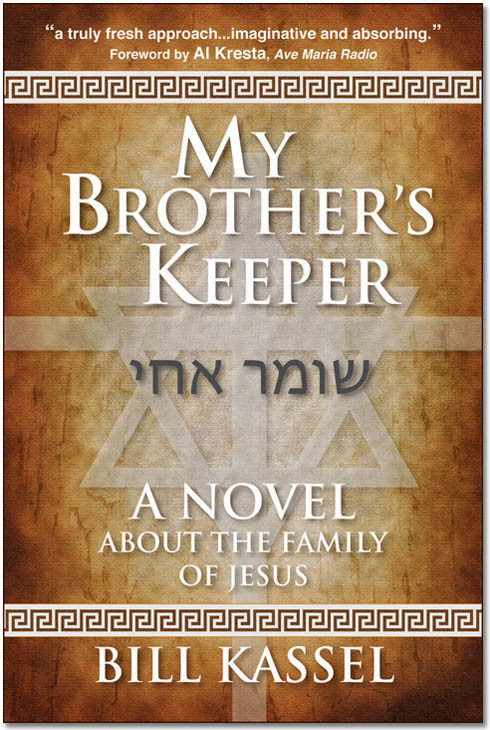WORKING AROUND SOME OF THE
STUMBLING BLOCKS TO FAITH
A recent Pew Research Center survey reveals that young people who list themselves as having no church affiliation (the “nones,” as they’re called) usually have a very simple and obvious reason for not coming to the Church or for deciding to leave it.
And it’s not the poor quality of the music, or the supposed irrelevance of the preaching, or the unfriendliness of the congregation, or the ineffectiveness of the youth ministry, or other such concerns, discouraging as all those may be.
The bottom line for most disaffected young people is that they simply don’t accept the Christian story. As reported by Fox News…
“most ‘nones’ said they no longer identified with a religious group because they no longer believed it was true ….
“When Christians walk away from the faith, more often than not, it’s due to some form of intellectual skepticism. Ex-Christians often describe religious beliefs as innately blind or unreasonable.”
Moreover, they…
“don’t think anyone in the Church can answer their questions or make a case.”
These findings are very much to the point of why I wrote my novel about the family of Jesus, MY BROTHER’S KEEPER.
The book reflects my own faith journey. I came from a position of benign skepticism about what had always seemed to me a highly unlikely story, if not a total myth: that God would become a man, then be put to an unjust and grizzly death, and then rise again.
I entertained all the dismissive thoughts common to young people who consider themselves agnostics…
The whole tale is nothing but folklore, or possibly the plot of some early novel that people started taking too seriously.
The Church wanted to whitewash Jesus’ real purpose, which had been to foment a revolution against Rome.
The Emperor Constantine had a fake history written in order to create a new religion that could help reinvigorate the faltering Roman Empire.
…and other scenarios that might, to a nonbeliever, rationalize the development of Christianity.
At some point I arrived at a crucial insight: that the key to believing in Christ is believing in God.
I realized that Jews and lots of other people don’t accept Jesus’ divinity, and you can debate that issue with them ’til the proverbial cows come home.
But if God is truly the one all-present, all-knowing, all-powerful Being — as He’s described, and as, at some level, I always assumed He was — then His earthly sojourn and His dying and rising must surely be within His capabilities. So events recorded in the Gospels were, at the very least, possible.
This was one of those blindingly obvious thoughts that can change your life. And it changed mine. It made me a convinced Christian.
But there remained a problem.
The Gospels paint a picture of a wise and kind person who spends his time giving a lot of uplifting sermons, healing the sick (even raising the dead), encouraging the downtrodden, calling people to live more loving, ethically ordered lives. This person is so inspiring and charismatic that he attracts large crowds to hear Him speak, and builds a corps of ardent disciples willing to follow him and spread his message.
What’s not to like about any of that?
Why would somebody want to hurt such a person, much less to kill him in one of the most gruesome and agonizing ways imaginable?
It occurred to me that this implausibility was a genuine stumbling block.
To people with my old agnostic turn of mind — even to those who, in their deepest, innermost hearts might wish to believe — it just didn’t make sense.
In the early 1980s I read Paul Johnson’s “A History of Christianity.” That book opened my eyes to the fact that there was a larger context for the Gospel accounts. There were political, religious, social and economic factors in play that weren’t fully explained in the Bible.
Why weren’t they?
Because the Gospels were written for people who lived close enough in time to the events recorded that they already knew and understood the situation.
And so I had one of those true “Ah-hah!” moments.
I realized that most people today are almost wholly unaware of this background. Even if they go to church every week and listen closely to the Scripture readings, the primary focus is on Jesus’ words and the moral lessons drawn from them. If people are fortunate enough to have a really knowledgeable preacher, they might get a bit broader perspective. But even then, the details are sparse.
And of course, if they don’t go to church, they won’t be getting very much of anything. Maybe — occasionally — they’ll hear some famous Bible passage quoted, but it will likely come to them plucked completely out of context, creating further misunderstanding and confusion.
Scholars know quite a lot about First-Century Palestine, the historical setting in which Gospel events took place. There’s plenty of material around, and after years of digging into it, I began to perceive the vague outlines of a novel.
What if I could present a fuller picture of the things going on around Jesus and His mission, as seen through the eyes of those closest to Him? What if I could lay out the political tensions and intrigues of the time, the sectarian divisiveness, the corruption among both civic and religious authorities, the effects of living under foreign domination?
What if I could show that there were real, tangible reasons why Jesus was seen as a threat by both the Jewish leadership and the Roman imperial masters?
It was an intriguing prospect. I was hooked (not to say obsessed, a condition which writers understand).
MY BROTHER’S KEEPER isn’t theological. I don’t try to explain the spiritual truths of the Christian message.
Rather, I try to offer an engaging story, based on a set of assumptions — assumptions I believe are plausible — about the circumstances of Jesus’ life and ministry. It begins with how Mary and Joseph are brought together, and it ends with the post-resurrection appearance of Christ to James (an occurrence that’s mentioned in the Bible).
I emphasize the human dimensions of the story over the miraculous (most of Jesus’ miracles take place “offstage”). And my tale is set against a background of actual historical events that are documented in both Scripture and ancient secular sources.
Additionally, I draw numerous details about Jesus’s family from the so-called “non-canonical gospels.” These are the writings that didn’t make it into the Bible, but that record beliefs and traditions maintained within various early Christian communities.
Now, it’s important to remember that MY BROTHER’S KEEPER is a novel, not a history textbook.
 Recipient of the Catholic Arts and Letters Award, it’s a work of the imagination. It doesn’t contradict the Gospels or deny Christ’s divinity, but it has a distinctive take on how things might have happened.
Recipient of the Catholic Arts and Letters Award, it’s a work of the imagination. It doesn’t contradict the Gospels or deny Christ’s divinity, but it has a distinctive take on how things might have happened.
I would never claim that it’s the absolute, undisputed truth. But it’s a fresh approach to the Christian story that might help people — perhaps some of the folks represented by that Pew survey — work their way around the stumbling blocks.
Naturally, I realize that there are those nonbelievers whose minds wouldn’t be changed if Jesus appeared to them in Starbucks and offered to pay for the coffee.
But some people are close to faith. Indeed, they long for faith. I hope that my book can help them think about Scripture in a new way and make a leap.
May the Lord let it be.
____________
 Here’s a link to the Fox News report about that Pew Research Center survey of young nonbelievers…
Here’s a link to the Fox News report about that Pew Research Center survey of young nonbelievers…
http://www.foxnews.com/opinion/2018/09/09/young-christians-are-leaving-church-here-s-why.html
Click here for further information about MY BROTHER’S KEEPER…
https://www.billkassel.com/brothers-keeper-novel-family-jesus/


Christopher says
From Facebook…
Excellent essay.
John says
If you have “entertained all the dismissive thoughts common to young people who consider themselves agnostics” you should probably have mentioned number one in your short list. The main reason given by agnostics, atheists, and anti-theists for their non-belief is religion’s lack of evidence. If you have doubts as to my ranking I can provide evidence, or you can take it on faith.
I have reread you book. Like all good stories the reader keeps finding stuff missed in previous reads. Your research and obvious writing talent gives a plausible story except, of course, for the virgin birth (see lack of evidence above). I always pictured Pontius Pilate a bit more autocratic and removed from the Jews he ruled over. Your take on his relationship with James was interesting.
Cheers!
Bill Kassel says
To John:
It’s certainly true that the virgin birth is something we don’t encounter everyday. This and other events recorded in Scripture (i.e. raising the dead, walking on water, feeding the 5,000, etc.) are elements of faith.
Of course, even Joseph didn’t buy Mary’s story at first, as the Bible tells us. It took an angelic visit in a dream to change his mind — which, of course, is another element of faith.
But all of this merely brings us back to the power of God. Either He can make these things happen or He can’t. We must decide what possibilities we’re willing to accept.
As I acknowledge in this post, faith requires a leap. My hope is that MY BROTHER’S KEEPER can help to clear away the obstacles that keep people from getting to the leaping point.
Bill
PS: Thanks for your encouraging words about the book and my writing. And I’ll admit that I have a soft spot for Pontius Pilate. I think history has been unkind to a guy who was in a really tough spot.
Virginia says
From Facebook…
May God use your work to lead people to faith in Jesus Christ.
Peter says
Thank you… informative… great insight.